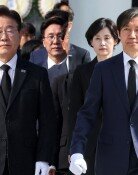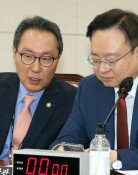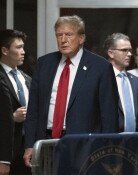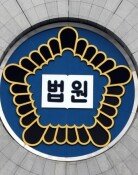Pyongyang’s threats towards Washington
Pyongyang’s threats towards Washington
Posted June. 22, 2020 07:47,
Updated June. 22, 2020 07:47
Pyongyang started threatening Washington with the possibility of attacking the U.S. with its strategic missiles and nuclear weapons in the event of a war on the Korean Peninsula. “North Korea currently has strategic missiles and nuclear weapons,” The North Korean Embassy in Russia said on Saturday. “The start of a new war on the Korean Peninsula will be recorded as a very special incident that will bring an end to the U.S. Empire.” Pyongyang has thus displayed an angry response after Washington is moving to deploy strategic assets, including sorties to the East Sea of the B-52 strategic bombers from Alaska over the weekend, for the first time since 2018 as a warning against the North’s provocations.
It is not the first time Pyongyang has threatened the U.S. with warnings of nuclear attacks. Around the time of ‘fire and furor’ in 2017, North Korean leader Kim Jong Un threatened that the U.S. mainland and the Indo-Pacific Command in Hawaii are within its striking range. However, Pyongyang’s threat to launch nuclear attacks on the U.S. is still no more than bluffing. Experts in the international community assess that the North’s nuclear development has not progressed enough to enable it to mount a nuclear warhead on an intercontinental ballistic missile. The North has failed in its tests to have its ICBM reenter the atmosphere.
However, it is only a matter of time before North Korea can reduce its nuclear warhead to a size small enough to mount on an ICBM. The North has never suspended its efforts to develop nuclear weapons and long-range missiles that can transport nuke warheads. Nevertheless, the South Korean government and the ruling party have made a flurry of statements that are based on the perception that denuclearizing the North through easing of sanctions is possible. Some ruling party lawmakers have said that denuclearization should not be the condition for inter-Korean exchange and cooperation. Others in the ruling party even have made statements meant to hold Washington responsible for Pyongyang’s nuclear development, misleading the public with inaccurate historical facts on the North’s nuclear development.
Now is the time when everyone, be it the ruling and opposition parties and rightists and leftists, in the South should make unanimous voice to deter Pyongyang from making further provocations. The North, which has warned an additional military provocation after destroying the Panmunjom inter-Korean liaison office in Kaesong with explosives, has deployed military soldiers to its guard posts and previously vacant undercover sentry posts in and around the demilitarized zone and started repairing them. Two North Korean coastal artillery guns were also monitored with their portholes open in the Kaemori coastal area near South Korea’s northwestern islands in the Yellow Sea. The North warned late last week that it will send and distribute anti-South Korean propaganda leaflets disparaging and condemning President Moon Jae-in.
Pyongyang is currently taking a breather before crossing the redline to making additional provocations, while monitoring the South Korean military’s response and readiness and Washington’s possible mobilizing of strategic assets. However, as soon as the North completes an ICMB mounted with a nuclear warhead someday in the future, Pyongyang will have a much bigger say towards Washington than now. South Korea will then inevitably have a smaller say and less influence on issues over the Korean Peninsula. If cities in the mainland U.S. are placed within the striking range of North Korean nuclear missiles, the U.S. will come to have more limited options in the event of an armed conflict. The South Korean government should keep in mind that if it merely continues studying others’ stances rather than facing the gravity over the North’s nuclear threats, the North’s nuclear threats towards the U.S. could become a reality, and only South Koreans will end up taking the brunt of damage.
Young-Sik Kim spear@donga.com
Headline News
- Israel prepares for retaliation against Iran
- Samsung reclaims top spot, surpassing Apple in smartphone market
- 77% of Koreans in 20s and 30s are 'Kangaroo Tribe' due to job crisis
- KBO referees embroiled in controversy over ABS decision concealment
- Inflation, oil price surge put double shock on global economy







